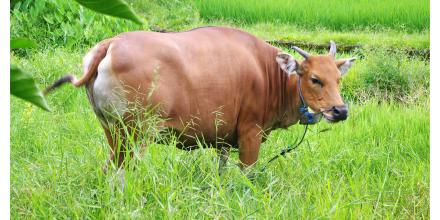Smallholders in the Indonesian livestock sector: A household perspective

Event details
ACDE Seminar
Date & time
Venue
Speaker
Contacts
The Indonesian government has expressed its strong ambition to achieve self-sufficiency in beef by 2014 when the upcoming presidential election will be held. Data vary across different sources, but it has been argued that local production can only meet about three quarters of domestic demand for beef. The public attention for the Indonesian beef sector has been driven by not only a highly politically sensitive beef graft scandal but also a massive amount of public investment that GoI has put in the sector through various government programs.
Despite these massive public investments the Indonesian beef sector still faces substantial challenges. Current trade policies may not provide optimum welfare benefits, whilst on-farm production is constrained by limited land and forage availability and issues with animal husbandry. Potential solutions for many technical issues are available either ‘at home’ or overseas. However, little is known about the perspective of smallholders beef farmers, which is crucial to project the sustainability of the livestock industry.
This study is to present preliminary insights into cattle farm households in Indonesia using data from the 2007 Indonesia Family Life Survey (IFLS). It focuses on 87 households (representing over 400 individuals) who reported that cattle production was their main farm activity. More specifically, this study investigates cattle farm’s participation in non-farm business and determinants of cattle farm profits. The findings can highlight some key issues at the household-level that future studies such as the Australian government-funded IndoBeef should investigate further and help identify whether there exist rationales for government interventions in the livestock sector.
Updated: 27 July 2024/Responsible Officer: Crawford Engagement/Page Contact: CAP Web Team






